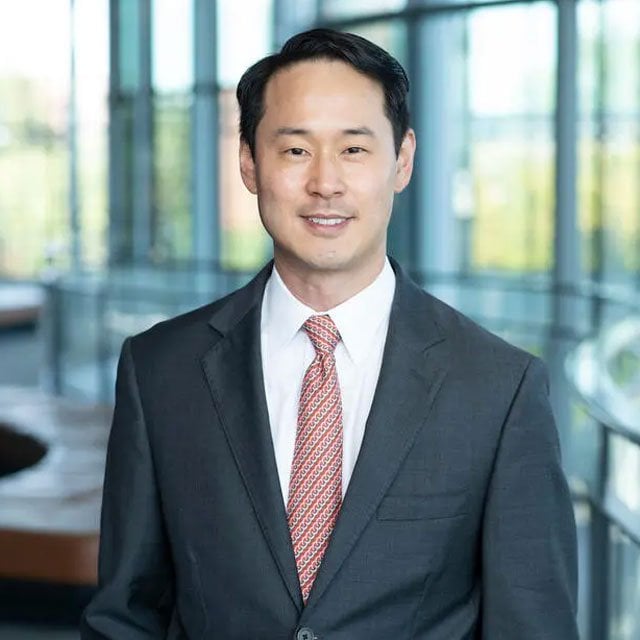Yale Prof: Why Wealthy Clients Chase Performance; What Personal Finance Gurus Get Right

“Over the past 15 years, value stocks have had lower returns than growth stocks,” argues James Choi, finance professor at the Yale School of Management, in an interview with ThinkAdvisor. “We just may be in a new era where value stocks will permanently have lower average returns than growth.”
That speculation is prompted, in part, by a survey of 2,484 high- and ultra-high-net-worth investors — UBS clients — that Choi conducted, showing that value stocks have “both lower expected returns and lower risk.”
Investors surveyed for “Millionaires Speak: “What Drives Their Personal Investment Decisions?” (Journal of Financial Economics, October 2022) had at least $1 million of investable assets — 18% had at least $5 million and 4% had at least $10 million.
The study found that the investors believe that a professional investment manager they identify as having superior stock-picking skills will bring them higher returns and that he or she can perform better than the average active manager has for the last several years.
They judge active managers by their track record and believe those who have been high performing will persist in delivering such returns.
But Choi, co-director of the Retirement and Disability Research Center at the National Bureau of Economic Research, points out in the interview: “The evidence that active strategies actually return more than passive strategies is scant.
“[The respondents] think that they’re going to do better, but they probably don’t,” he says.
Another recent paper Choi wrote, “Popular Personal Financial Advice Versus the Professors” (Journal of Financial Economics, August 2022), shows that “popular advice frequently departs form [standard] principles determined from economic theory,” as the professor maintains in the interview.
This study looks at 50 personal finance books, including some written by David Bach, Robert Kiyosaki, Suze Orman, Dave Ramsey and Burton Malkiel.
“Popular advice is sometimes driven by fallacies, but it tries to take into account the limited willpower individuals have to stick to a financial plan,” Choi writes.
There are indeed several divergencies between the authors and the professors.
Choi comments on where the authors are more likely to be correct and where the professors are apt to have it right.
ThinkAdvisor recently held a phone interview with Choi, who was speaking from New Haven, Connecticut.
He says that as shown in the “Millionaires Speak” survey, rich investors are “certainly influenced” by financial advisors because they’re paying for their expertise.
But when it comes to active investing, “it doesn’t necessarily matter how well [or subpar] the average active manager did — [they believe that] they can do better than the average.”
Here are excerpts from our interview:
THINKADVISOR: From your survey of 2,484 UBS wealthy investor clients, “Millionaires Speak: What Drives Their Personal Investment Decisions,” value stocks are thought to have “both low expected returns and lower risk.” Is that surprising to you?
JAMES CHOI: Yes and no. The puzzle is that historically, value stocks have had higher average returns than growth stocks, but over the past 15 years, value stocks have actually had lower returns than growth.
That’s a real break from the trend over [previous] decades. So we just may be in a new era where value stocks will permanently have lower average returns than growth stocks.
Your research shows that 33% of the respondents describe advice from a professional financial advisor as very or extremely important.
So, do these high-net-worth folks respect financial advisors?
I don’t know if they respect them, but they certainly are influenced by them.
Not even a majority of people have the expertise nor time to devote to learning about personal financial matters.
Therefore people pay a lot of money to financial advisors to get [expert] advice. Is it any surprise, given the sheer amount of money that’s spent on advisory services, that people might actually listen to what they’re told?
Nearly half of the respondents have invested in an active investment strategy through a fund or professional manager, your research says. The “most common reasons are professional advice and the expectation that they’ll earn higher average returns.” How does that jibe with reality?
The evidence that active strategies actually return more than passive strategies is scant. So that’s the interesting tension: The [respondents] think they’re going to do better, but they probably don’t.
The research shows, similarly, that “a significant amount of active investing through funds by the wealthy is driven by a belief that they can identify managers who will deliver superior unconditional average returns. Past fund-manager performance is seen as strong evidence of stock-picking skill.”
Does that mean these investors tend to make decisions based on a manager’s track record?
The pattern of response suggests that they just look at how well the person has done in the past and will chase the returns of those managers who had high [returns].
In most of life’s domains, it’s a pretty good rule of thumb that if somebody does really well in something, chances are they’re going to keep on doing pretty well in the future [known as “persistence”].
But investing is one of the rare domains in life where that doesn’t hold.
Don’t wealthy investors know that, or don’t their advisors tell them?
I think they don’t. The advisors have an incentive to appear as if they’re adding value.
So if they say, “I can tell you which [manager] is hot now, and you should move your money over to them,” it feels like a value-add versus just [staying with] the same old “boring” [approach] of keeping [money] in an index fund every year.
Because the investors [have the attitude]: “Why am I paying you 1%, Mr. or Ms. Advisor?,” [the financial advisor] has got to say something.




